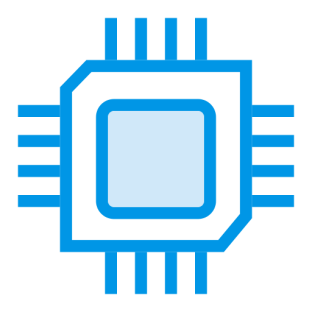Computer science fundamentals are the key building blocks of technological innovation. They explore computational systems, algorithms, and digital problem-solving strategies. These elements drive modern technological advancements in our digital age.
The landscape of essential computer science concepts has changed dramatically. U.S. jobs needing medium-high digital skills rose from 44% to 70% between 2002 and 2016. Understanding these principles is now crucial for professional success.
Computer science has five key fundamental concepts. These are computing systems, networks and internet infrastructure, and data analysis. The other two are algorithms and programming, and the broader impacts of computing.
These domains provide a framework for understanding how technology shapes our world. The digital economy’s growth highlights the importance of these foundational skills. By 2022, experts predicted 60% of global GDP would be digitalized.
Computer science fundamentals are more than just basic tech skills. They represent a sophisticated approach to understanding complex systems. These skills help solve intricate problems and drive technological progress across many industries.
Understanding Core Computer Science Foundations
Computer science is a dynamic field requiring essential skills and knowledge. Exploring fundamental concepts starts with understanding key elements of digital competence.
Defining Computer Literacy
Computer literacy is the ability to use digital technologies effectively and confidently. It goes beyond simple device operation.
This skill includes understanding how computers function and interact. Key components involve basic hardware and software navigation.
It also covers understanding digital interfaces and performing routine tasks using technology. Recognizing fundamental computing principles is crucial too.
- Basic hardware and software navigation
- Understanding digital interfaces
- Performing routine tasks using technology
- Recognizing fundamental computing principles
Digital Citizenship Elements
Digital citizenship involves responsible and ethical technology use. It covers critical aspects of online interaction.
These aspects include online safety and privacy protection. Respectful digital communication is also important.
Understanding digital rights and responsibilities is crucial. Recognizing potential online risks is another key element.
- Online safety and privacy protection
- Respectful digital communication
- Understanding digital rights and responsibilities
- Recognizing potential online risks
Basic Computing Skills
Developing basic computing skills forms the groundwork for advanced technological proficiency. Essential skills include:
- File management and organization
- Internet research techniques
- Basic troubleshooting
- Understanding cybersecurity fundamentals
Mastering these foundational skills prepares individuals to navigate an increasingly digital world with confidence and competence.
What Makes a Computer Science Concept Fundamental or Essential?
Computer science explores technology’s core principles and mechanisms. It goes beyond simple digital skills. Understanding these concepts means grasping why technology works as it does.
The landscape of essential computing principles is dynamic. It spans multiple areas of technology. Key features define fundamental computer science concepts.
- Universal applicability across different technological domains
- Longevity of core principles despite technological changes
- Ability to solve complex problems through systematic thinking
- Potential to create innovative technology-based solutions
Digital transformation statistics highlight the importance of these concepts. By 2022, about 60% of global GDP was set to be digitalized. This shows how crucial computer science is in modern economies.
The U.S. Bureau of Labor Statistics predicts strong growth in computer science jobs. They expect a 25% increase from 2021 to 2031. This further emphasizes the field’s significance.
“Computer science encompasses the study of computers and algorithmic processes, including principles, hardware and software designs, applications, and societal impacts.” – Tucker et al., 2003
Mastering these concepts is a smart career move. It’s more than just academic learning. Professionals with strong foundational knowledge can adapt to new tech trends easily.
They can develop innovative solutions in various industries. This knowledge helps drive technological progress across different fields.
Essential Components of Computer Science Education
Computer science education is vital in our digital world. It helps students understand technology’s role in shaping our future. Mastering key concepts prepares learners for the ever-changing tech landscape.

Computer science has five critical concepts. These provide a comprehensive framework for learning. They cover various aspects of technology and its impact.
- Computing systems and architecture
- Networks and internet infrastructure
- Data and analysis
- Algorithms and programming
- Impacts of computing
Computing Systems and Architecture
Computing systems are the backbone of technological innovation. They include essential hardware and software components. Understanding their architecture helps students grasp how computers manage information.
Networks and Internet Infrastructure
Network infrastructure enables global communication. It supports data transmission and cloud computing. These systems allow seamless information exchange across various platforms.
Algorithms and Programming Basics
Algorithms are the problem-solving language of computer science. They offer structured approaches to computational thinking. Developers use them to create efficient solutions for complex challenges.
| Concept | Key Focus | Career Relevance |
|---|---|---|
| Computing Systems | Hardware Design | Systems Engineering |
| Network Infrastructure | Connectivity | Network Administration |
| Algorithms | Problem Solving | Software Development |
Mastering these components prepares students for the digital ecosystem. It positions them at the forefront of technological innovation. They’ll be ready to tackle future challenges in the tech world.
The Role of Fundamental Concepts in Technology Development
Technology development is rapidly changing our world. Computer science innovation drives this change, creating solutions that revolutionize our lives. By 2022, experts predicted 60% of global GDP would be digital.
Core computer science principles are the basis for technological breakthroughs. These concepts allow professionals to create complex algorithms and develop intelligent systems. They also help in creating innovative software and solving tough tech problems.
- Design complex algorithms
- Develop intelligent systems
- Create innovative software solutions
- Solve intricate technological challenges
Modern tech relies on understanding key computer science ideas. Artificial intelligence and machine learning show how basic concepts become game-changing technologies. Mastering these principles opens doors in many industries.
Computer science innovation affects more than just tech fields. It’s driving digital change in healthcare, finance, and more. By 2030, AI could add $15.7 trillion to the world economy.
Mastering fundamental computer science concepts is no longer optional—it’s essential for driving technological progress.
New professionals must understand core computing ideas to stay competitive. The ability to use these concepts in different areas will set innovators apart. This skill is crucial in our fast-changing tech world.
Critical Skills for Modern Computer Science
Computer science pros need a strong set of core skills beyond just coding. Today’s tech world requires a broad approach to problem-solving and innovation.
These pros must develop advanced problem-solving skills for complex tech challenges. Such skills involve creative thinking and strategic approaches to create new solutions.
Computational Thinking Strategies
Computational thinking is key for breaking down complex problems. This approach involves several steps.
It includes splitting big problems into smaller, solvable parts. It also means finding patterns and creating systematic solutions.
Lastly, it requires focusing on core issues and designing algorithmic approaches.
- Decomposing complex problems into smaller, solvable segments
- Recognizing patterns and developing systematic solutions
- Abstracting irrelevant details to focus on core issues
- Designing algorithmic approaches to problem resolution
Data Analysis Techniques
Data analysis is now crucial in computer science. Pros use advanced methods to gain insights from huge datasets.
Effective data management requires several key skills. These include understanding stats and using machine learning algorithms.
- Understanding statistical methodologies
- Implementing machine learning algorithms
- Developing predictive modeling skills
- Creating robust data visualization techniques
| Skill Category | Key Competencies | Industry Demand |
|---|---|---|
| Problem-Solving | Analytical reasoning | High |
| Computational Thinking | Algorithmic design | Very High |
| Data Analysis | Statistical interpretation | Critical |
The digital economy keeps growing, making up 22.5% of global GDP in 2016. As a result, experts with advanced computer science skills are in high demand across many industries.
Impact of Computer Science Fundamentals on Career Success
Tech industry jobs offer amazing opportunities for skilled professionals. In 2021, the U.S. had over 918,000 computer science job openings. By 2026, this number is expected to grow to 1.2 million.
Mastering computer science concepts gives professionals a competitive edge in the tech industry. Key skills driving career success include advanced programming, algorithm design, cybersecurity, and data analysis.
- Advanced programming techniques
- Algorithm design and optimization
- Cybersecurity knowledge
- Data analysis capabilities
The digital economy needs pros who can tackle complex tech challenges. Proficiency in core computer science principles leads to career growth and higher salaries. Computer science careers offer pay that’s twice the national average.
AI and cloud computing are changing tech jobs. The global AI market could hit $190.61 billion by 2025. This creates many chances for experts who understand basic tech concepts.
Adaptability and continuous learning are the cornerstones of success in computer science careers.
Developing strong computer science skills puts pros at the forefront of tech innovation. This ensures long-term career success in the ever-changing digital world.
Conclusion
Computer science fundamentals are vital in today’s tech-driven world. With 918,000 job openings in 2021, mastering these skills is crucial for success. The digital economy now makes up 22.5% of global GDP.
These core concepts empower people to tackle complex tech challenges. AI systems can analyze data with 90% accuracy in pattern recognition. Cybersecurity strategies can reduce risks by up to 60%.
Professionals must adapt and keep learning as technology evolves. 70% of U.S. jobs now need medium to high-level digital skills. Mastering these basics puts you at the forefront of innovation.
Computer science opens doors to countless opportunities. These skills drive progress across industries and lead to high-paying careers. It all starts with understanding basic principles and a love for learning.




